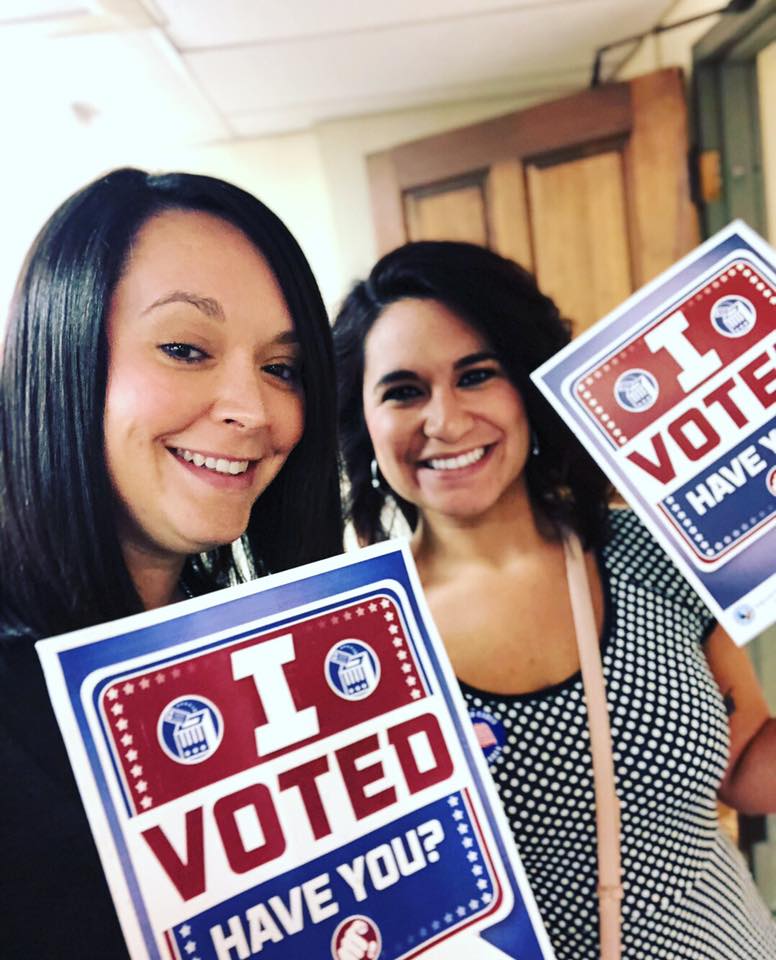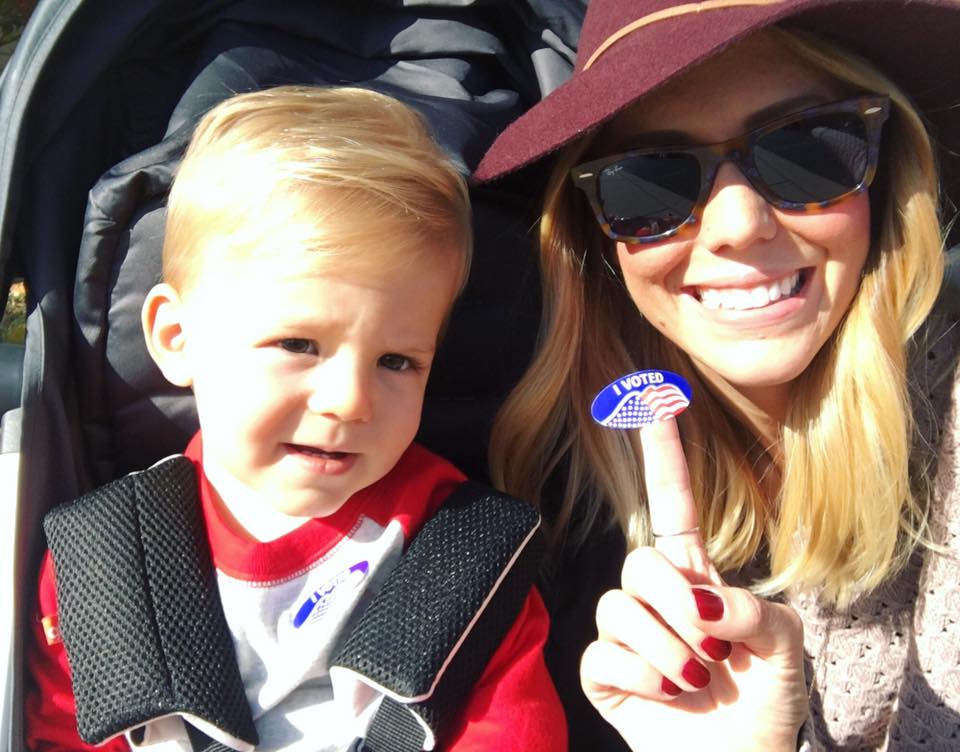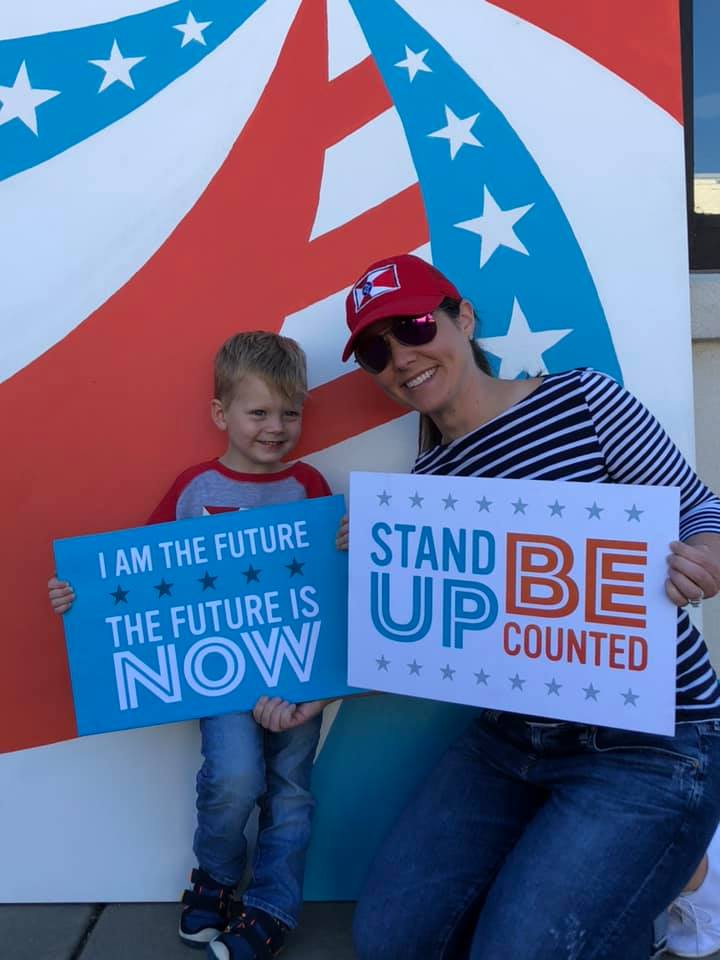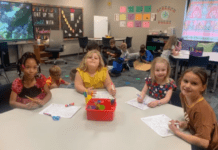
I’m stepping out on a limb today to talk politics. On the internet. Why on Earth would one choose to talk politics to a diverse audience in a time when we may feel polarized, angst, and uncertainty?
Because it matters, and we should show our kids how to do it.
Let’s talk disagreement. More importantly, let’s talk compromise and resolution. Politics is really all about deciding who gets what, when and how. We are going to disagree, sometimes to our core, about how decisions are made or how resources are distributed. Even though it can seem only two-sided, politics is also about compromise. It’s about understanding we all have different opinions. Politics, much like being part of a family, means we come to the table and hash things out.

Let’s talk action. You have a vested interest in each vote cast, policy made, and law signed. There are countless ways to participate in our system of government. And, you know what? Democracy loves you. Democracy wants to whisk you off your feet. Much like a three-year-old, democracy wants your attention. You get a voice and a choice. Flex your civic muscles and get moving! This is where you make a decision to take action on something you want to see changed. What a powerful example to provide for your budding children. Taking action requires courage and vigor. Not a bad thing to model for families, or better yet, for them get involved too. It’s all about accountability, always.
Let’s talk facts and media literacy. This has become incredibly necessary. In the information age, we need to employ skills to help us decipher all that is bombarding us from every angle, every second of the day. Media literacy is the ability to evaluate the information we are receiving and the vehicle in which it is communicated. In other words, it’s an awareness that not everything posted on social media is accurate or true. It’s putting the stories we hear and read under a microscope for further examination. It’s building a habit of checking sources and questioning the details.
 Let’s talk about our beliefs and values. In academia, the term “political socialization” is used to describe the process by which we learn about our beliefs and values concerning the role of government. Guess who has the greatest influence in how a child learns about government? Bingo. It’s family. Defy the social norms and talk about politics at the dinner table, discuss current events on the car ride to school, and share stories of adversity and triumph. Raise little scouts to analyze and question what is happening in the world around them. By talking about our own beliefs and values, our children are provided the opportunity and confidence to build their own identity.
Let’s talk about our beliefs and values. In academia, the term “political socialization” is used to describe the process by which we learn about our beliefs and values concerning the role of government. Guess who has the greatest influence in how a child learns about government? Bingo. It’s family. Defy the social norms and talk about politics at the dinner table, discuss current events on the car ride to school, and share stories of adversity and triumph. Raise little scouts to analyze and question what is happening in the world around them. By talking about our own beliefs and values, our children are provided the opportunity and confidence to build their own identity.
 Let’s talk about defeat and leadership. In politics, there are a lot of losers. I am sure you probably can think a few. Or maybe you have been on the losing side of a candidate or issue. It may not feel great, but fighting for something that matters and dealing with setbacks builds grit and strength to move forward. Losing and then whining looks good on 100% of no one. Politics opens the doors to opportunities to lead. Arm yourself with your beliefs and values, stand at the helm, and take off.
Let’s talk about defeat and leadership. In politics, there are a lot of losers. I am sure you probably can think a few. Or maybe you have been on the losing side of a candidate or issue. It may not feel great, but fighting for something that matters and dealing with setbacks builds grit and strength to move forward. Losing and then whining looks good on 100% of no one. Politics opens the doors to opportunities to lead. Arm yourself with your beliefs and values, stand at the helm, and take off.
Now look, we talked politics. Not so bad, huh?
Keep the conversation going! Here are a handful of great resources for you and your family to talk politics:
- Vote Smart: Candidate and Election Information
- Factitious: See just how media savvy you are
- U.S Government & Politics: Short videos produced by PBS about all things government and politics
- Voting and Elections: Answers to common voting and election questions
Make sure you never miss out on things to do in Wichita: subscribe to our weekly Wichita Mom newsletter! Be the first to know about our exclusive events, special offers and discounts, neighborhood group activities and, of course, local resources and parenting voices powered by local Wichita moms!
















